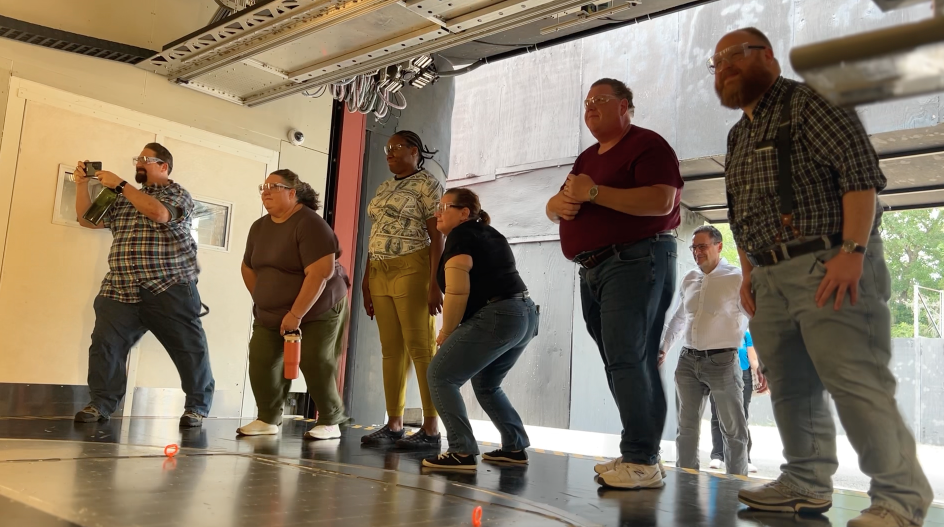When Zonnelle Hanley’s high school students return to class this fall, they will dive into hands-on, project-based lessons on how storms affect Florida’s northern coasts.
Thanks to the NHERI Teacher Training Institute at the University of Florida, Hanley’s students will study storm-related vulnerabilities and resilience on the Gulf Coast and the Atlantic Coast. They will engage in research, build models, examine ecosystems, and review Florida geography.
“Some of our students have not been out of Tallahassee,” Hanley told a group of her peers recently as she presented her lesson plan, developed from a week of Natural Hazards Engineering Research Infrastructure (NHERI) teacher training at UF.
Not only will Hanley and her students benefit from these National Science Foundation-funded, UF-faculty-led workshops, but she will also have easy access to faculty and engineering students, as well as materials and other UF resources to enhance her STEM classroom.
Hanley was one of six Florida high school educators selected to study at UF this month. After four days, they left with extensive project-based lesson plans on wind resistance, new ways to think about STEM teaching, and memories of trying to stay upright in a wind tunnel.
The 2024 session, marking the fourth year of the five-year NHERI workshops, wrapped up June 7 with presentations by the teachers on how they will integrate those lessons—and UF resources—into their classrooms.
“The most valuable takeaway is that we are here to serve them and their students,” noted Jeremy Waisome, Ph.D., the Thomas O. Hunter Rising Star Assistant Professor who has overseen the NHERI Teacher Training Institute since it evolved from a $4.5 million NSF cooperative agreement with the Herbert Wertheim College of Engineering in 2021.
It is an important mission, the teachers say, because they provide essential skills, ideas, and networking opportunities. The workshops also inspire high school students about engineering and its diverse applications and career fields. The NHERI Teacher Training Institute works with diverse groups and Title I schools, so inspiration is key, as many students are unaware of engineering careers, lack interest, or believe they are not capable of pursuing them.
“Some say, ‘Oh my gosh! Is this part of a marine science career? That is possible?” noted Maureen Shankman, a teacher at Santa Fe High School who participated in the institute.
“When the kids get to see what they can do with this, they get excited,” added Ken Jakoby, a teacher in Sarasota County.
The institute also provides student tours and hands-on projects for K-12 students in Florida.
“The Herbert Wertheim College of Engineering has always valued outreach, especially across the state of Florida,” Waisome said. “As someone who was recruited to UF through these programs, it is truly a privilege to now facilitate them for our students and teachers.”
Teachers in the June session said they loved the project-learning approach, as it aligns with their classroom teaching methods. Among the hands-on lessons, the teachers built and tested wind turbines.
They also spent considerable time at UF’s wind hazard experimental facility on East Campus in northeast Gainesville. The facility—where the teachers battled high wind gusts in the tunnel—is one of seven NHERI facilities in the United States that support research on tsunamis, earthquakes, hurricanes, and tornadoes, along with structural-damage mitigation and societal impacts.
“This was not a sit-and-get,” Shankman said of the hands-on, wind-in-her-face UF session. “This was a sit-and-do.”
For more information:
David Schlenker
Public Relations Specialist
Herbert Wertheim College of Engineering
352-273-0616

